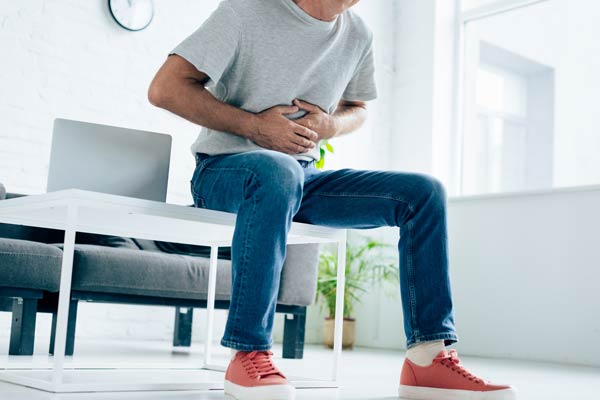Many people who abuse painkillers usually become addicted to them. Some of those people may move on to abusing harder illegal drugs such as heroin because it’s cheaper than prescription drugs. The National Institute on Drug Abuse (NIDA) says people are not only using illicit opiate drugs, but also prescription medications, such as prescription opiate painkillers. Vicodin is an example of pain medications in this class. These drugs attach to opioid receptors on nerve cells, especially in the brain and spinal cord, but these receptors are also found in other organs and the gastrointestinal tract. Opioids, therefore, have profound effects on the body.
Painful Withdrawal Caused by Opiates
Those who become addicted to drugs, such as opioids, most likely always have a decline in one’s general quality of life as an effect. Some of the consequences include loss of interest in hobbies, loss of friends or connect with family, late to work or loss of a job, deterioration of health, isolation, and many more. One may even have the thoughts of quitting drugs altogether, turning their life around, because of these consequences but cannot because of the fear of withdrawal. When one stops taking opioids, the drug quickly leaves the body. Without the drug that the body is used to getting, it goes into a painful opioid detox. Opioid withdrawal symptoms start usually not too long after the drug was last ingested, the timeline depends on the method of use. Opioid withdrawal symptoms include, but are not limited to, body aches and pains, vomiting, diarrhea, fatigue, trouble sleeping, and more. Over time the symptoms will end but most individuals don’t go through this “cold turkey” without some form of medicinal help or without giving up and relapsing and returning to using opioids. Going through opioid withdrawals is not life-threatening, even though it may feel like it. It is very uncomfortable and is not recommended to go through it alone without medical attention. A healthcare professional can help guide you through the withdrawals with medicine, such as methadone or buprenorphine that will slowly wean one off the opioids.
Opioid Detox at Home with Imodium?
Although not recommended and usually not successful, some do try to detox themselves at home with home remedies one may find online. This can be very dangerous depending on what is instructed to take for the withdrawal symptoms and the dosage. One of the home remedies that are recommended is Antidiarrheal Medications, such as Imodium. Imodium helps prevent and treat diarrhea by slowing down digestion and the movement of your intestines. Loperamide, the active ingredient in Imodium, is an opiate receptor agonist. That means it’s a type of opiate. It works by affecting proteins called opioid receptors found in cells in your gastrointestinal tract. It signals these opioid receptors to keep working. This balances your digestive system to keep you from having diarrhea or constipation. Because it is also an opioid and many people assume it will act as a detox medication that can help the withdrawal pains as well as diarrhea, but this is not true. Imodium only treats diarrhea because it doesn’t cross the blood-brain barrier at normal doses, so there is no high experienced. Because of these misconstrued concepts of Imodium helping with opioid withdrawal, there is a possibility for overdoses, therefore; it is not safe to take for opiate withdrawal. When taken more than directed severe symptoms can occur including urinary retention, liver damage, and something called paralytic ileus, which is a stoppage of the intestine.
Is Imodium Safe as an Opioid Detox Medication?
The bottom line is that Imodium is not safe for opioid withdrawal, not effective enough, and can be dangerous to your health. You should never self-medicate and always have a medical professional around if opioid withdrawal symptoms arise and that is where Evoke Wellness at Cohasset comes in. Our medical professionals and doctors create a personalized detox program specifically for you and monitor you and help ease the side effects to a minimum while your withdrawal from the drugs. At our Massachusetts detox center, we offer you 24-hour assistance from our medical staff to make sure you stay safe at all hours. While it is important to get the drugs from your system physically, it is also important to mentally get yourself healthy as well. On top of your personalized medically assisted detox; you will also be involved with individual and group therapy sessions with our experienced and informational behavioral health technicians. We want to make sure you re-equipped with the knowledge to stay healthy and sober when you reenter the real world.




